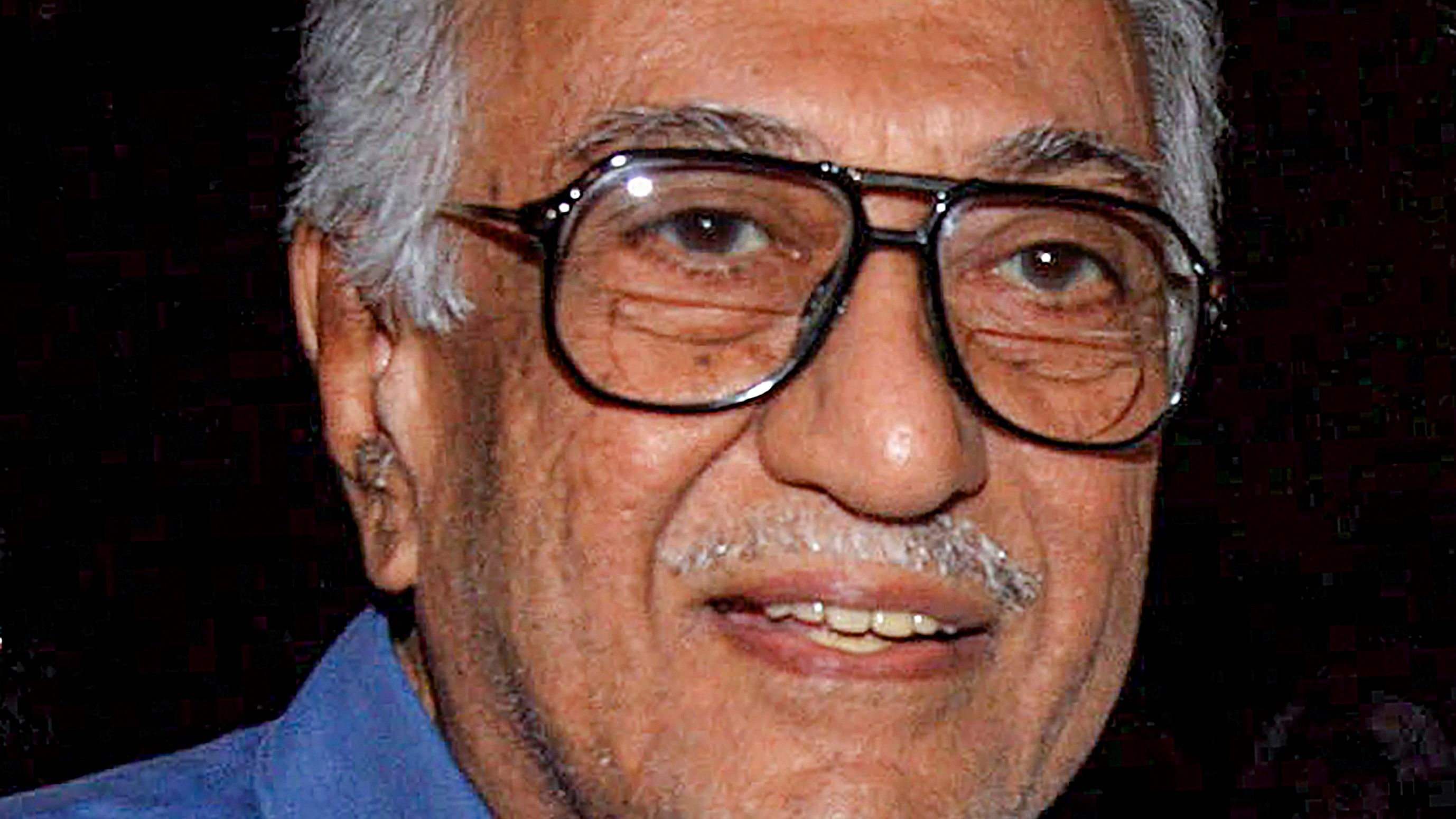
Late radio announcer Ameen Sayani.
Credit: PTI Photo
The violin-shaped Chowdiah Memorial Hall in Bengaluru was jam-packed. I was standing backstage, waiting to step out and face the spectators. I could hear the chatter of the audience. The curtains were about to be drawn aside, and the man for whom they had thronged the venue was standing right beside me. It was Ameen Sayani, the presenter of the popular music countdown show 'Binaca Geetmala' for 42 years (from 1952 to 1994).
The doyen of India’s radio, walking stick in hand and glasses on his nose, had a mild smile playing on his face, which was almost as famous as his voice.
The year was 2018, the show organised by Rotary Bangalore was called 'Ameen Sayani – Live in Concert'. When I led him onto the stage, Ameen saab received a standing ovation even before the program began.
Respect and adulation can’t be bought. It is earned. In Ameen saab’s case, it grew over a span of 91 years, 83 of which were spent in the public eye. His first brush with the medium was when he was 8 years old. He participated in a children’s quiz show at All India Radio, Bombay.
Most obituaries since his passing on February 20 have put out the staggering statistics — he produced and compiled 54,000 radio programs, and 19,000 spots and jingles since 1951. He also lent his voice to film narration. And at the peak of its popularity of the show that would play on Radio Ceylon, he would receive 65,000 letters a week.
‘Behenon aur Bhaiyon’ he began at the event in Bengaluru’s Chowdiah Memorial Hall. The words and the baritone launched yet another applause. Those three words, followed by ‘Main aapka dost Ameen Sayani bol raha hun’ was what the country would hear on millions of radio sets daily. To him, giving precedence to ‘behenon’ wasn’t merely a show. He was respectful and gentle with women - a quality I observed when I met him at his niece Kalpana Kar’s home in Koramangala to discuss what we would talk about on stage. During the show, when he sensed my confusion about addressing him as Mr Sayani or Ameen saab, he said, “Vasanthi, Ameen uncle bulao.. Lekin, Ameen dadaji mat bulaana.” (Call me uncle, but don’t call me grandfather).
His memory was razor sharp. He recalled dates, names of singers, composers and anecdotes with accuracy. He regaled the audience with tales of Manna Dey, Pancham and Naushad. He had a special fondness for the sisters Lata Mangeshkar and Asha Bhonsle. In 2012 Ameen saab had released an album containing hundreds of sound bytes from Hindi cinema and music icons. It was then that Rotary Bangalore reached out to him. They requested the master storyteller to profile 25 of these greats in a series of live concerts that took place in 2012, 2013 and 2018.
I noticed in the last show, his memory had begun to fade a bit. I doubt the audience realised. I didn’t see him for the next few years, though I did keep in touch with Rajil Sayani, his son. During the height of the pandemic, I thought about recording a podcast with him but given health concerns, I did not push it. I regret it now.
I was attending a media conference in Mumbai three weeks ago. I took some time off to go visit him. Rajil had informed me that he doesn’t recognise people. When Ameen saab came out of his room to meet me, he asked for a diary, which his daughter-in-law handed him. He then read out my name from it — a ritual they followed to save him and his visitors any embarrassment. I had by then brought up the podcast with Rajil and we discussed how we could work around the constraints caused by his dementia. Ameen saab, who urged me to have my tea and patrode (made from colocasia leaves) before they went cold, had questions and requests. "Did I speak in English or Hindi on your show?". “I am hard of hearing, you will have to speak into my ears. The hearing aid doesn’t help.”
My eyes grew moist when he spoke about his wish to write a book about religions. "All religions are equal. This is what makes India a great country,” he said. These were his thoughts when memory was failing him. What a humanist and patriot he was!
We chatted some more until it was time for him to rest. I clicked some pictures with him, took his blessings and left with a plan to return to Mumbai soon to record my podcast.
On February 20, that dream came to an end. I never got to record even one session. I felt crushed that I hadn’t acted on my plan earlier. But I also felt grateful I made that one last trip to see him days before he left this world.
A gentleman broadcaster like none other has left forever. The show must go on. But how can it?
(The author is a radio television journalist and podcaster)